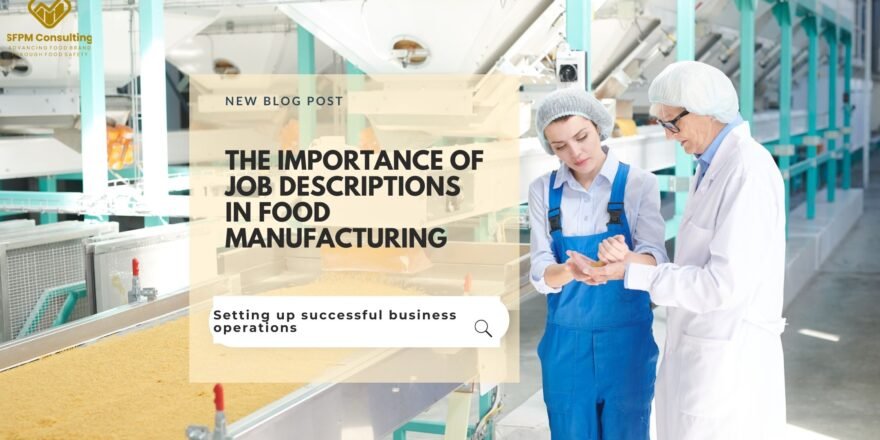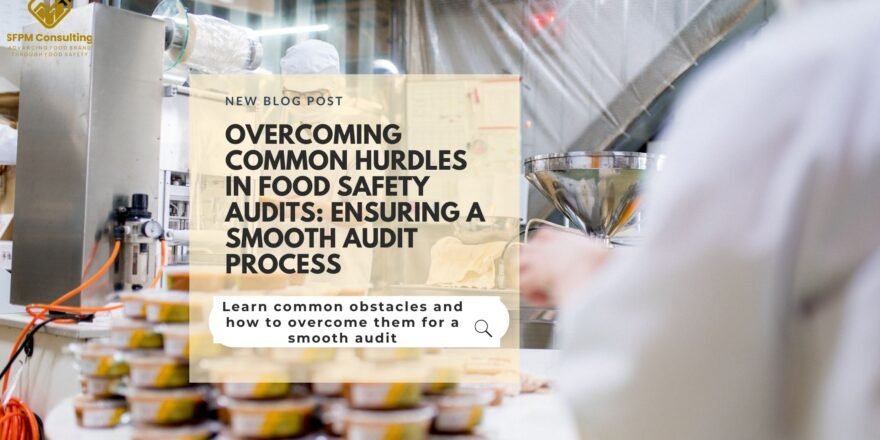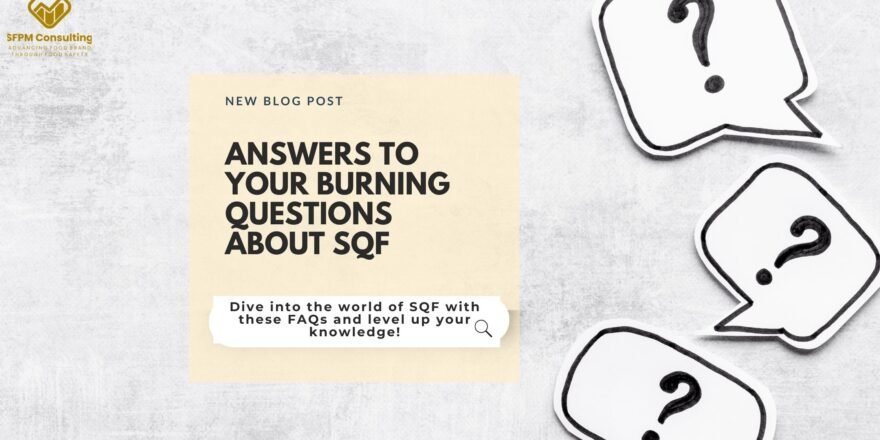There are many questions about hiring or how to be a Quality Assurance Specialist.
Understanding the Role of Quality Assurance Specialist
Quality Assurance Specialists play a crucial role in ensuring that products and services meet the highest quality standards. They are responsible for developing and implementing quality assurance processes, conducting tests and inspections, and identifying and resolving any issues or defects that may arise. Quality Assurance Specialists also play a key role in maintaining compliance with industry regulations and standards, as well as ensuring customer satisfaction.
You can also find that these positions have similar role as a Quality Assurance Specialist -HACCP Coordinator, SQF Practitioner. Some company even have the responsibilities added under the Quality Assurance Manager or QA Manager.
In addition to their technical responsibilities, Quality Assurance Specialists also play a critical role in fostering a culture of continuous improvement within an organization. They work closely with cross-functional teams to identify opportunities for process optimization and efficiency, and they provide valuable insights and recommendations for enhancing product quality and performance. Overall, Quality Assurance Specialists are essential for maintaining the integrity and reputation of a company’s products and services, and they are instrumental in driving overall business success.
Quality Assurance Specialists must possess a strong attention to detail, excellent problem-solving skills, and a deep understanding of quality management principles and best practices. They must also have strong communication and interpersonal skills, as they often collaborate with various teams and stakeholders to meet quality standards. Additionally, they must be adaptable and work effectively in a fast-paced and dynamic environment.
How to Hire for QA Specialist?
When seeking candidates for Quality Assurance Specialist positions, it is important to identify key skills and qualities that are essential for success in this role.
Bear in mind that the qualifications that we have listed here are purely guidance and must be integrated within your organization’s hiring fit and HR Procedures.
QA candidates should possess a strong attention to detail and a meticulous approach to their work, as they will be responsible for conducting thorough tests and inspections to ensure product quality. They should also have excellent problem-solving skills and the ability to think critically and analytically, as they will need to identify and resolve any issues or defects that may arise.
In addition to technical skills, candidates should also possess strong communication and interpersonal skills, as they will often collaborate with cross-functional teams to ensure that quality standards are met. They should be able to effectively communicate their findings and recommendations, and they should be able to build strong working relationships with various stakeholders. Candidates should also be adaptable and able to work effectively in a fast-paced and dynamic environment, as they will need to respond quickly to changing priorities and requirements.
Overall, when identifying candidates for Quality Assurance Specialist positions, it is important to look for individuals who possess a strong attention to detail, excellent problem-solving skills, strong communication and interpersonal skills, and the ability to work effectively in a fast-paced environment. These key skills and qualities are essential for success in this role, and they are instrumental in upholding the quality and integrity of an organization’s products and services.
What to expect during an interview?
When conducting interviews for Quality Assurance Specialist positions, it is important to utilize effective interview techniques to assess candidates’ skills, qualifications, and fit. One effective technique is behavioural interviewing, which involves asking candidates to provide specific examples of how they have demonstrated key skills and qualities in previous roles. This allows interviewers to gain insight into candidates’ past experiences and how they have applied their skills in real-world situations.
Another effective technique is situational interviewing, which involves presenting candidates with hypothetical scenarios related to quality assurance challenges and asking them how they would approach and resolve these situations. This allows interviewers to assess candidates’ problem-solving abilities, critical thinking skills, and approach to handling complex quality assurance issues. Additionally, it is important to ask open-ended questions that allow candidates to provide detailed responses and showcase their knowledge and expertise in quality assurance.
Utilizing effective interview techniques is essential for assessing candidates’ skills, qualifications, and fit for Quality Assurance Specialist positions. Behavioural interviewing, situational interviewing, and asking open-ended questions are all effective techniques for gaining insight into candidates’ past experiences, problem-solving abilities, critical thinking skills, and overall approach to quality assurance challenges.
For candidates, preparing for your interview may mean reflecting on your past experiences and how to approach and resolve the situation. It is never about how well you completed them but rather what you have learned from the experiences.
Promote Your Team
Assessment for Internal Candidates
If you are not promoting within your existing organization, you should consider giving your internal team the first priority. Here are some practical assessment methods for evaluating your internal team’s skills and qualifications for Quality Assurance Specialist positions. One effective technique is administering technical assessments that evaluate candidates’ knowledge of quality management principles, testing methodologies, and industry regulations and standards. These assessments can help identify candidates with the technical expertise required to succeed in this role.
Another practical assessment method is to conduct job simulations or case studies that present your team with real-world quality assurance challenges and ask them to demonstrate how they would approach and resolve these situations. This allows you to assess your team member’s problem-solving abilities, critical thinking skills, and approach to handling complex quality assurance issues. Additionally, it is important to give your team members opportunities to showcase their practical skills through hands-on exercises or demonstrations.
Implementing practical assessment methods is essential for evaluating candidates’ skills and qualifications for Quality Assurance Specialist positions. Technical assessments, job simulations, case studies, hands-on exercises, and demonstrations are all effective methods for assessing candidates’ technical expertise, problem-solving abilities, critical thinking skills, and overall approach to quality assurance challenges.
Don’t Loose Good Candidates to the Compensation Package
To attract top talent for Quality Assurance Specialist positions, it is important to create a competitive compensation package that reflects the value of the role and rewards candidates for their skills and qualifications. This may include offering competitive base salaries commensurate with candidates’ experience and expertise in quality assurance.
If you are concerned about the value, consider offering performance-based incentives or bonuses that reward candidates for achieving key quality metrics or targets. Make sure you don’t go back on your words once you promised.
In addition to financial compensation, offering a comprehensive benefits package that includes health insurance, retirement savings plans, paid time off, and other perks that contribute to candidates’ overall well-being and job satisfaction is important. Offering a competitive compensation package helps attract top talent and demonstrates an organization’s commitment to valuing its employees’ contributions.
Creating a competitive compensation package is essential for attracting top talent for Quality Assurance Specialist positions. Offering competitive base salaries, performance-based incentives or bonuses, comprehensive benefits packages, and other perks demonstrates an organization’s commitment to valuing its employees’ contributions and rewards candidates for their skills and qualifications.
Providing Ongoing Training and Development Opportunities for QA Specialists
Once top talent has been recruited for Quality Assurance Specialist positions, it is important to provide ongoing training and development opportunities to help them further develop their skills and expertise. This may include offering access to professional development resources such as workshops, seminars, conferences, or online courses that help QA specialists stay current with industry best practices and emerging technologies.
Additionally, it may include providing opportunities for QA specialists to pursue professional certifications or credentials that demonstrate their expertise in quality management principles, testing methodologies, or industry regulations and standards. Offering ongoing training and development opportunities helps QA specialists enhance their skills and demonstrates an organization’s commitment to investing in its employees’ professional growth.
Overall, providing ongoing training and development opportunities is essential for helping QA specialists further develop their skills and expertise. Offering access to professional development resources such as workshops, seminars, conferences, online courses, professional certifications, or credentials demonstrates an organization’s commitment to investing in its employees’ professional growth.
We have a series of training that can guide your team members to grow and improve their food safety and interpersonal skills. Contact us, and we will cover the fees for the first course to enhance your team member’s skills.
Building a Collaborative and Supportive Work Environment for QA Team
In addition to providing ongoing training and development opportunities, building a collaborative and supportive work environment for the QA team is important. This may include fostering open communication channels that allow QA specialists to share insights, best practices, and recommendations with cross-functional teams. It may also include promoting a culture of teamwork that encourages collaboration and knowledge sharing among QA specialists.
Additionally, it may include providing mentorship or coaching opportunities that help QA specialists further develop their skills and expertise. Offering support from experienced QA professionals helps QA specialists enhance their skills and fosters a sense of community within the QA team.
Overall, building a collaborative and supportive work environment is essential for fostering teamwork, knowledge sharing, and mentorship opportunities within the QA team. Fostering open communication channels promoting a culture of teamwork and offering mentorship or coaching opportunities demonstrates an organization’s commitment to creating a positive work environment for its QA team.
—
We help guide our client’s team to learn how to efficiently manage food safety and quality management systems. The team members typically work with us to solve the challenge, reducing the need for management or business owners to oversee the process. This allows more time for management to focus on growing the food company. Contact us at https://tidycal.com/sfpmconsulting/strategy-call and let’s help you grow your food brand.



